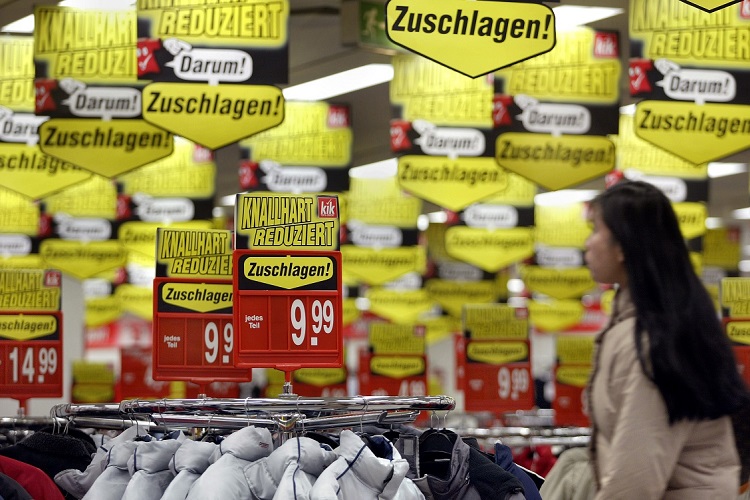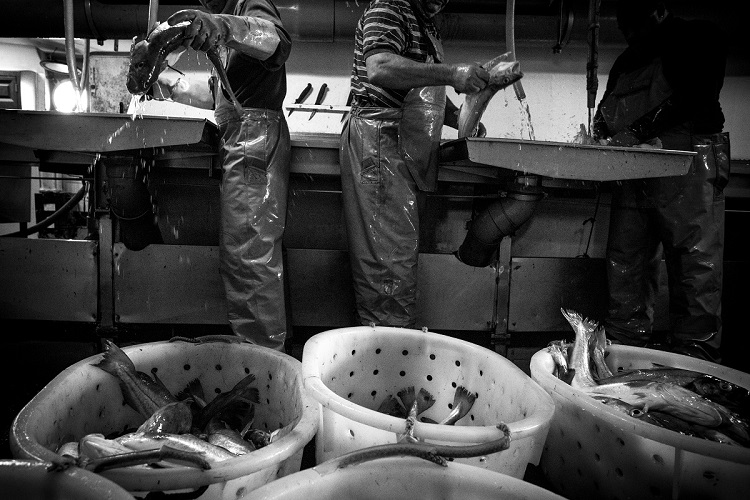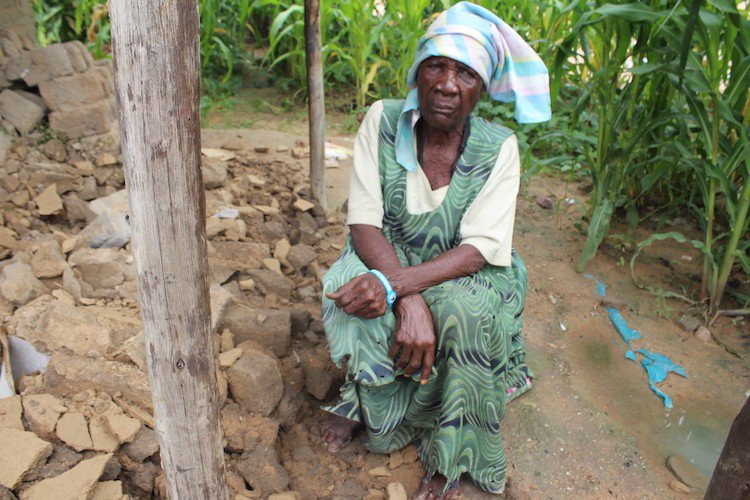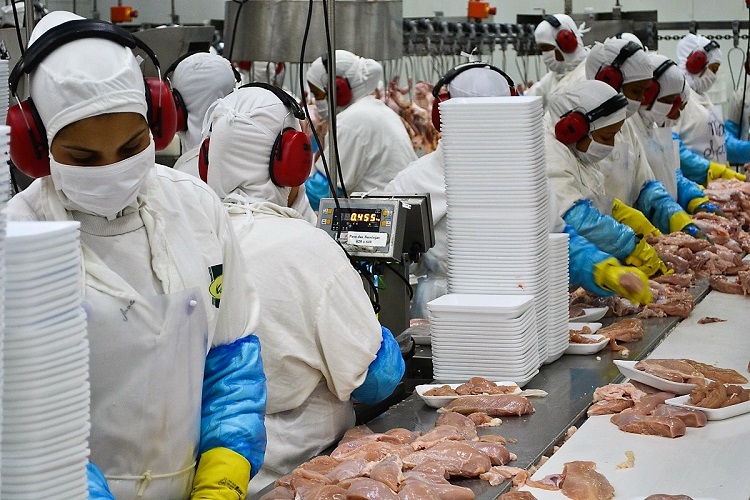Workers are busy at a garment factory in Phu Tho Province, Vietnam, October 2015.
Equal Times continues its summer review begun last week with a selection of articles on climate change.
In our globalised economy, as consumers and citizens, we are increasingly confronted with the impact of our purchases on the lives and health of those who produce and make our food and day-to-day objects.
“People all over the world understand that you’ll never get multinationals to put an end to the abuse of workers in supply chains without new international rules” writes Makbule Sahan, Director of the International Trade Union Confederation’s Legal Unit, and Ruwan Subasinghe, Legal Officer at the International Transport Workers’ Federation.
In an opinion piece for Equal Times published at the end of December, the two authors underline the almost systematic use of subcontractors by multinationals. This is how, when the rights of supply chain workers are flouted, the big multinationals, who display their brands in advertisements with positive and catchy slogans, keep their distance from any responsibility and often benefit from a high degree of impunity.
Since the Rana Plaza disaster in Bangladesh, Western consumers have become more aware of the conditions under which our clothes are made, mainly in Asia. Our correspondent in Germany, Rachel Knaebel, wrote about a court case that was a first in the country: the families of victims of a factory fire at a subcontractor for the German textile giant KiK, located in Pakistan, were heard by judges.
“The decision opens up the possibility for a German enterprise to be tried in its own country for the working conditions at its sub-contractors, even if they are on the other side of the world.”
Big companies’ search for profit also drives them to impose a neck-breaking pace of work on their employees. It is even the case in Europe and its floating factories, the industrial boats that sail the North Atlantic. In a report for Equal Times, the photographer Pierre Vanneste has illustrated the harsh life of the fishermen who gut the thousands of tons of fish that grace the tables of Europeans. “As soon as we’re on board and have reached the fishing ground, the work never stops until the holds are full,” says François, a former seafarer on an industrial fishing boat. Then there is the never-ending round of net-mending, factory work, hauling in the trawl nets...without a minute’s rest for the seafarers.
This frantic pace of production has an impact on the people, but also on the environment. Industrial fishing causes pollution and endangers natural resources in the long term. Similar consequences can be seen in the extraction and mining industry, throughout the world.
Equal Times has reported on the terrible case of the exploitation of lead mines in Zambia which poisoned the workers and all the inhabitants around its Kabwe site for 90 years. Lead is a metal widely used in our everyday objects, in our homes (plumbing and electrical wiring), our cars (parts and bodywork) and our electronic objects, for example. Journalists Wonder Chinhuru and Ray Mwareya have returned to this region of southern Africa to observe the health impact on all those who are today victims of the lack of precautions and consideration by mine operators.
To optimise production costs, employers under market and shareholder pressure, in addition to neglecting the safety of buildings, imposing impossible deadlines and allowing workers to poison themselves, opt for the casualisation of line workers, which increases the risk of accidents. “It is important for people to know that the meat that is produced in Brazil and exported to Europe has been prepared at the cost of great human suffering,” a prosecutor told me for an article on the subject, referring to the case of Brazilian multinational JBS, the largest meat production and processing company in the world.
This selection of articles is here to remind us of the suffering and consequences that our economic system produces. Collective awareness is the first step to demanding, side by side with the unions, that things must change.
Dying to produce low-cost clothing: German textile giant lambasted
By Rachel Knaebel

KiK is a low-cost German textile giant that has 3,400 shops throughout Europe, a turnover of 1.8 billion Euros (USD 2 billion) and factories in China, Bangladesh, India, Turkey, Pakistan, Cambodia... Only 4 per cent of its merchandise is made in Germany.
On 11 September 2012, in the Baldia industrial area of the Pakistani city of Karachi, a fire broke out in a textile factory. Two hundred and sixty workers died. Trapped in by barred windows and blocked emergency exits, they were either burnt alive or suffocated to death. Thirty two survivors were left seriously injured.
Like many textile factories in the region, the Ali Enterprise factory that caught fire that day makes up orders for western companies. Some 70 per cent of this factory’s output went to KiK, the low-cost German textile giant that has 3,400 shops throughout Europe, a turnover of €1.8 billion (US$2 billion) and factories in China, Bangladesh, India, Turkey, Pakistan and Cambodia. Only 4 per cent of its merchandise is made in Germany.
Four years after the deadly inferno, a compensation agreement was finally reached on 10 September 2016 between the German enterprise and representative of the victims and their families. It foresees the creation of a US$5 million compensation fund, on top of the US$1 million that the group paid out immediately in 2012 to aid the victims.
Read the full article on Equal Times
Fishermen in the north-east Atlantic: living at the pace of the trawl catch
By Pierre Vanesse

The most tiresome and most time-consuming job on board is the monotonous task of sorting the fish. The workers sort the fish in the factory on the lower deck, removing any that are too small, defective or not fit for sale, before gutting.
With the doubling of the world population since 1960 and changes in eating habits, the amount of fish caught for human consumption has radically increased, reaching over 150 million tonnes a year - the equivalent of 5000 kilogrammes a second. Sixty per cent of this catch is wild fish.
According to the United Nations Food and Agriculture Organisation – the FAO – Europeans, for example, now eat an average of 27 kg of fish a year.
Huge factory trawlers plough the various fisheries, depending on the product sought, to supply major distribution outlets. This large-scale commercial fishing, also known as industrial fishing, is heavily subsidised by public funds.
Industrial fishing operations receive an average of 187 times more diesel fuel subsidies per year than small-scale fishers, despite generating less employment – with 200 industrial fishers for every 1000 tonnes of fish as compared with 2400 small-scale fishers for the same volume. Moreover, industrial fishing is much more devastating in terms of discards.
Read the full article on Equal Times
Poisoned profits: decades later Zambians pay the terrible cost of lead mining
By Wonder Chinhuru and Ray Mwareya

Angela Miyoba, 69, makes clay pots in Kabwe Town, Zambia. She says that years of breathing and burning soil that has been poisoned with lead has damaged her lungs and left her unable to walk. She spends all day squatting around her house as shown, because she is unable to move from pain.
For decades, mining has formed the backbone of Zambia’s economy, accounting for 12 per cent of its GDP and 70 per cent of its export earnings. But however much Zambia earns in export revenues as Africa’s largest producer of copper and cobalt, for residents of the town of Kabwe, the cost is too much to bear.
Home to approximately 300,000 people in Zambia’s Central Province, the environmental damage that has been caused by lead mining in Kabwe has been nothing short of catastrophic. Ten years ago Time magazine named it alongside Chernobyl as one of “the world’s most polluted places” and experts say that millions of adults and children have been poisoned over the years.
Long-term exposure to lead – which enters the bloodstream and attacks the central nervous system – affects everything from fertility to birth weight to childhood development. It can result in high blood pressure, brain damage and even death. Children are particularly vulnerable to the affects of lead.
Zambia’s largest lead mine and smelter operated in Kabwe from 1902 until it closed operations in 1994. While it was operating, there were no regulations regarding emissions from the mine or the smelter plant. As a result, Kabwe’s soil, plants and air were all contaminated over a course of decades.
Read the full article on Equal Times
In Brazil, workers’ rights are minced in the meat industry
By Mathilde Dorcadie

A chicken abattoir in Sao Paulo State, in 2015. That year, Brazil produced 26.5 million tonnes of meat (beef, poultry, pork) according to the Ministry of Agriculture. It is the world’s second largest meat producer after the United States, and may overtake its competitor in 2020.
In January 2015 the Mato Grosso Labour Ministry took legal action against JBS for making its employees work longer hours than allowed by law, and in unhealthy conditions, in its slaughterhouses. Staff complained of poor hygiene linked to the presence of large quantities of blood and viscera that could spread disease.
There have already been poisonings from ammonia, a liquid coolant, on several sites. In 2015, for example, 66 people became ill in Santo Iniacio (Paraná) and recently, in September 2016, 70 people were poisoned near Goiânia (Goiás).
“They felt sick, some vomited, had migraines, and two people passed out” an emergency doctor told the Globo channel following the incident. The abattoir concerned had been repeatedly ordered by the labour inspectorate to comply with safety standards. The company responded to the criticism by denying it had any link with previously reported flaws.
These examples are only a small proportion of the cases that JBS has been implicated in, over the respect of the rights of its 45,000 employees. Although its competitors BRF (formerly Brazil Foods) or Marfrig are hardly exemplary in this field, it is JBS that is top of the list for the number of court cases.











